As a kid in school, it felt like our teachers made all the rules. We just had to follow along and do what we were told while they got to call the shots. But sometimes, even teachers are given rules they don’t agree with. So when one principal enacted a strict “no leaving your classroom without asking permission” rule, her staff decided to maliciously comply. Below, you’ll find the full story that one mischievous teacher recently shared on Reddit.
After classes began relocating to avoid a terrible smell, one principal enacted a rule that teachers must not leave their classrooms without permission
Image soucre: RossHelen (not the actual photo)
This did not sit well with the educators, however, so they decided to alert the principal’s office of their every move
Image source: Pressmaster (not the actual photo)
Image source: Dids (not the actual photo)
Image source: Middle_Pound_822
Principals have a lot on their plates, but that doesn’t mean they should go making rash decisions without consulting their staff
Image source: seventyfourimages (not the actual photo)
In theory, teachers are in charge of their own classrooms. They create the daily plans, and they’re on their own when teaching lessons to students. However, there might be less in their control than many non-educators realize. Curriculum is set by the school board or the state, and principals are constantly keeping their eyes on what’s happening in every classroom. Apparently, if the public had their way, teachers would have creative freedom over about 70% of what goes on in their classrooms, meaning they can’t deviate from the curriculum, but the way they go about teaching those lessons should be primarily up to them: the individual exercises, how they format tests, the homework they assign, etc.
However, not everyone thinks teachers should be able to take too many liberties in their classrooms. According to Grant Wiggins, E.D, “In few professions are novices allowed to free-lance. No doctor or electrician can blithely invent basic techniques or simply decide not to use by-the-book solutions to diagnoses or problems. In fact, in medical education (as I have since learned from discussing these issues with medical school educators), no intern or resident has the authority to administer any intervention without the sign-off of superiors; and few doctors would deviate from prescribed responses to common ailments unless those prescribed approaches failed to work.”
Having a conversation to address teachers’ concerns can help to prevent situations like this
“Why should teaching be any different?” Wiggins goes on to ask. “Why, for example, would we allow a 22-year-old teacher, fresh out of college, to decide on her own (working mostly in isolation, on top of it) what her students need all year as readers in terms of learning activities and assessment? Why wouldn’t we frame core high-quality math units in some detail and only give math teachers the authority to deviate from them if student results and indicators gained via supervision and walk-throughs suggest that they are effective as teachers?”
It’s possible that the principal in this story feels similarly, that seniority and experience give one the qualifications to be making decisions in a teaching environment. And that teachers are there to teach, but maybe not to have a say in the rules. This is where teachers and principals can butt heads, however. According to EducationWeek, some of the traits that educators value most in their principals are being trusting, supportive, receptive, personable and caring.
Focused Schools also examined what teachers want most from their principals, and the top five things one teacher noted were: someone who works harder than her, someone who gets to know the students, someone who helps teachers get better, someone who makes difficult but right decisions, and someone who has a focused plan for the school. “Every decision must be made with the students at the forefront of the decision making process,” one teacher said.
Students want to feel seen and heard by their educators, and teachers want the same respect from their principals
Image source: Taylor Flowe (not the actual photo)
“Thus, the leader must always think of the students first and foremost. Often, making decisions through this lens can be difficult, and it requires a truly strong person to be able to do so,” the teacher went on to note. “However, it’s what a strong school and our students need. When administrators start making decisions based on other motivations (maybe to maintain the status quo, maybe to make themselves or the school appear better or maybe to avoid the difficulties that may arise) the schools and the staff begin to lose their way. Ultimately, it’s the students that suffer the most.”
There’s no question that being a principal, as well as being a teacher, is not an easy task. But when it comes to making decisions for the school, it’s best when both can work together to keep the best interest of the students and the school as the primary focus. Although this story on Reddit was shared in a lighthearted and silly way, I hope the principal learned her lesson that she doesn’t need to keep her staff on an extremely tight leash. In fact, if she does, it’s likely to only backfire and take away from time that could be spent educating. We would love to hear your thoughts on this situation in the comments below, pandas, and then if you’re interested in reading another Bored Panda article featuring malicious compliance taking place in the classroom, look no further than right here.
Many readers applauded the teachers for their malicious compliance
Some also shared concerns about the sewage smell and tips for how to address that issue
“I Wanted To Make Her Regret Sending It As Quickly As Possible”: Teacher Takes Revenge On Principal By Complying ... - Bored Panda
Read More

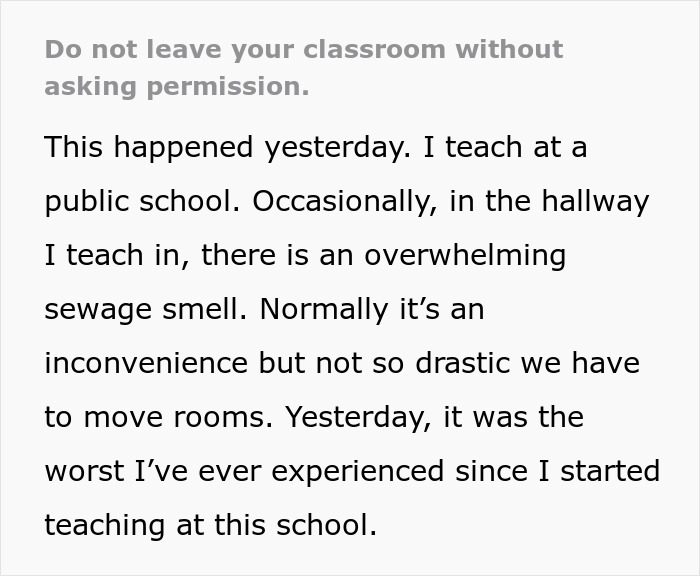
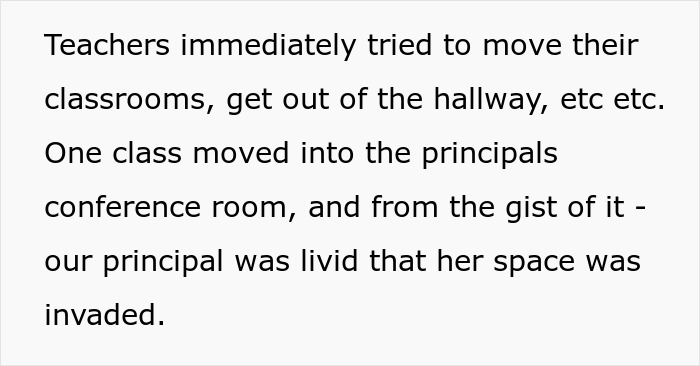
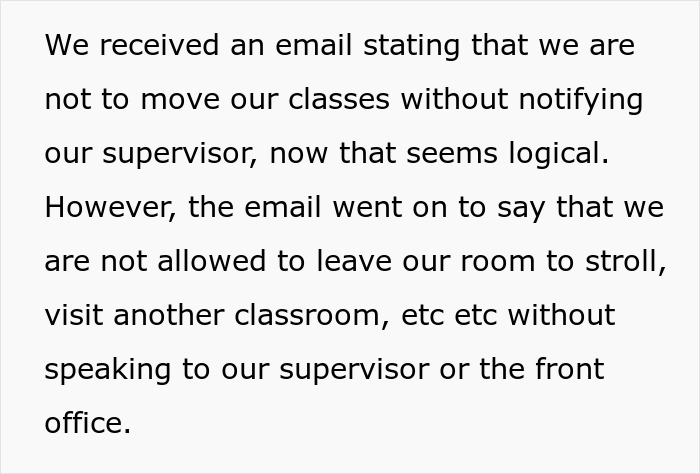
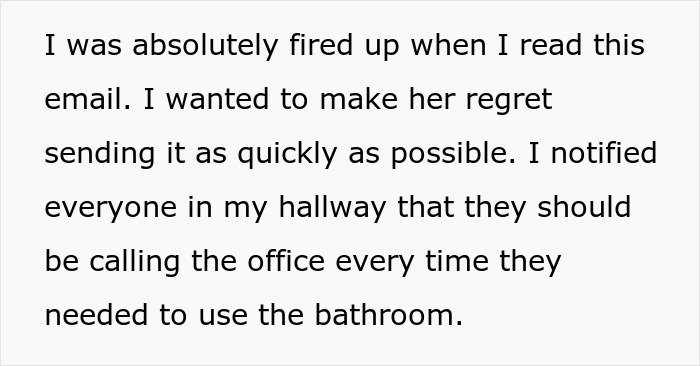

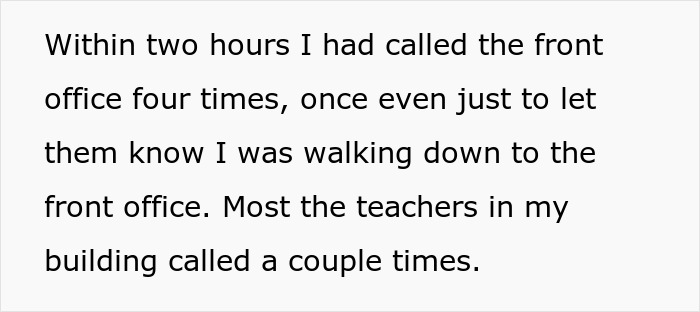

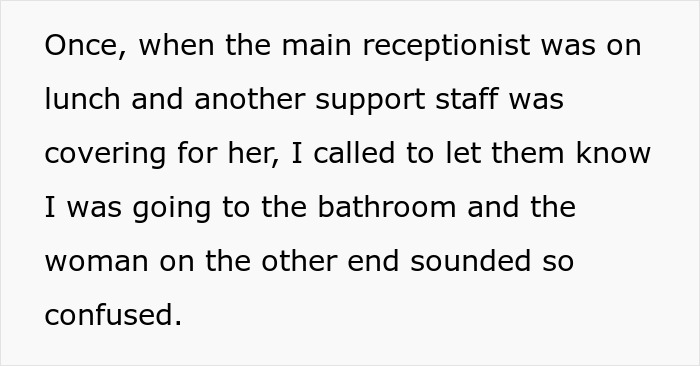
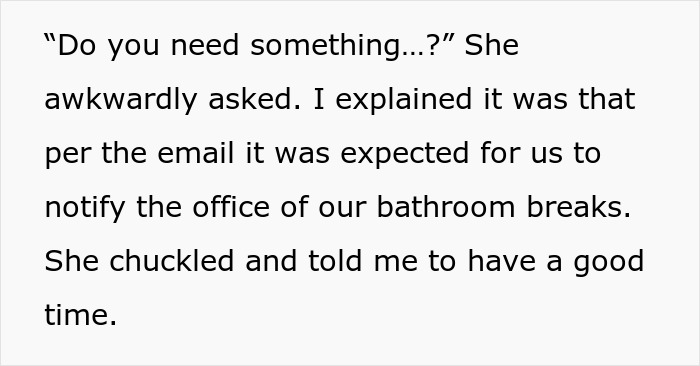
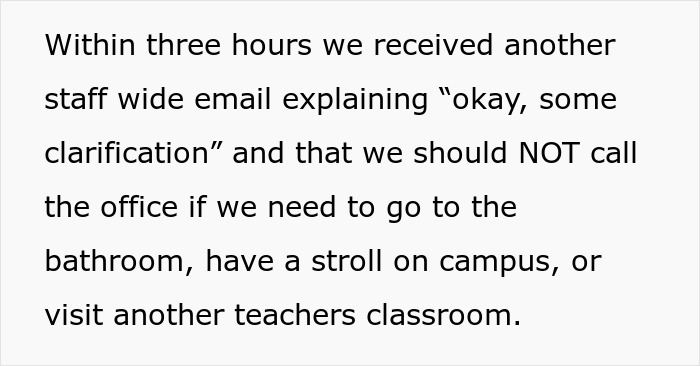
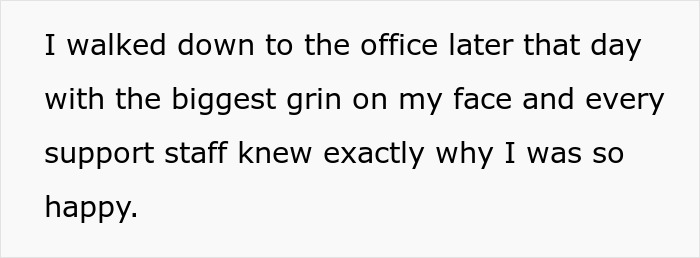

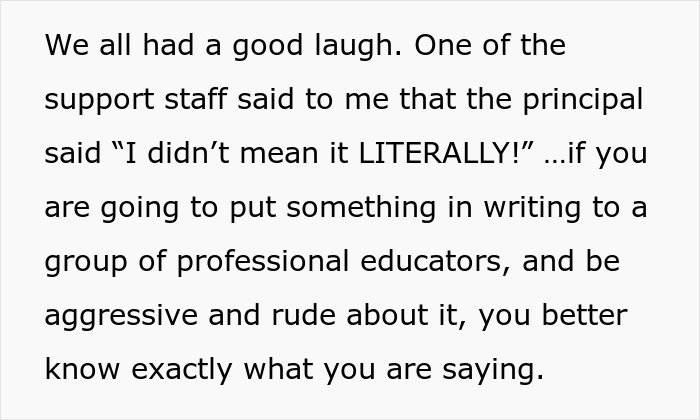

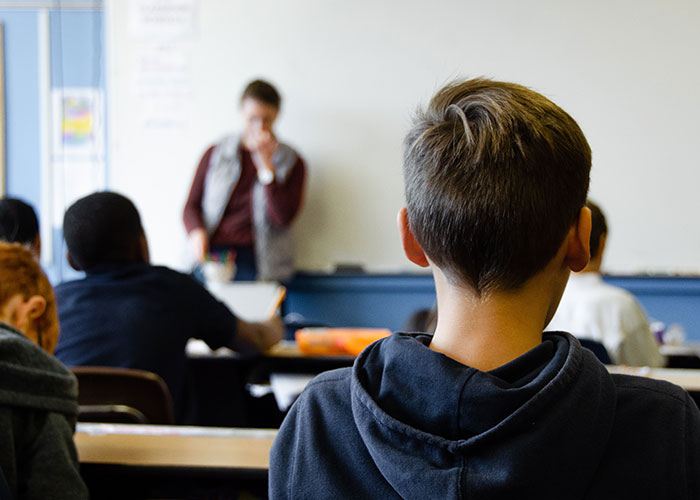

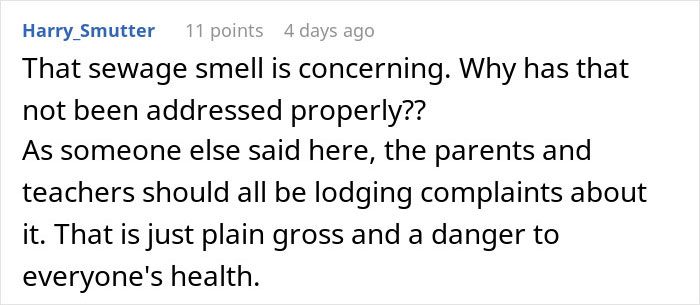
Tidak ada komentar:
Posting Komentar